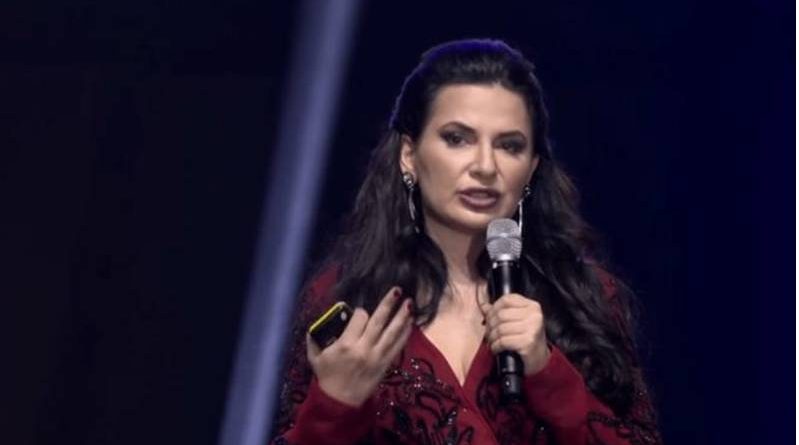Mystery of the disappearing ‘Cryptoqueen’ Ruja Ignatova of OneCoin
It seems every week brings evidence of scams and fraud, from the hacking of exchanges to Initial Coin Offerings where the founder disappears with the money. Just on Monday, America’s Securities and Exchange Commission charged the founder of an online adult entertainment marketplace with running a fraudulent ICO (Initial Coin Offering).
But that case involved tens of thousands of dollars – a mere bagatelle compared to the monster cryptocurrency scam whose story is being told in an enthralling BBC podcast.
In The Missing Cryptoqueen, Jamie Bartlett investigates the woman behind OneCoin, a scheme which managed to persuade investors around the world to part with as much as £4bn ($4.9bn)
They had bought into the compelling vision of a new kind of money sold by Dr Ruja Ignatova, in a series of events in countries around the world. You can catch a flavour of the mixture of hoopla, hucksterism and blockchain balderdash in a video of her appearance at London’s Wembley Arena in 2016.
Dr Ignatova – or Dr Ruja to her fans – walks on to “This Girl is on Fire”, tells an excited crowd that OneCoin is on course to overtake Bitcoin, and derides “all those Mickey Mouse coins that have copied our concept.”
Plenty of people were convinced, including one of the stars of the podcast, Jen McAdam from Glasgow. She invested €10,000 herself in the Bulgaria-based scheme and persuaded family members to put in €250,000 – that’s about £220,000 at current exchange rates.
But in 2017, Dr Ruja Ignatova disappeared – and she hasn’t been seen since. Image copyright Getty Images Image caption Investment in cryptocurrencies has gone up and down
The investigation by the team behind the podcast has uncovered just how successful OneCoin had been in spreading its message around the world. Internal documents reveal that people in 175 countries invested, with much of the money coming in a six-month period in 2016 when Dr Ruja was on a global tour – including that Wembley appearance.
In the UK, £26m was invested in that period, and the podcast team reckons that the total coming from British investors may have been as high as £96m.
But the documents show that €427m came from China in 2016, with people in South Korea, Hong Kong and Germany also keen investors. Even in poorer countries like Vietnam, Bangladesh and Uganda, people parted with substantial sums.
Earlier this year in the United States, Dr Ignatova was charged in absentia with money laundering, with the Department of Justice calling OneCoin an old-fashioned pyramid scheme.
And indeed this and other crypto-scandals seem disturbingly familiar to anyone who has been in financial journalism for a while – the same old tricks delivered with a hi-tech veneer.
Back in 2016, Bitcoin was still a revolutionary disrupter of the tired old financial system, blockchain was going to be more important than the internet and something called an Initial Coin Offering (ICO) was going to show Wall Street that an Initial Public Offering was so “last century”.
Now, after the wild gyrations in the value of cryptocurrencies and the realisation that just about every ICO fails to deliver on its overblown promises – even if it’s not an outright scam – you might think that “crypto” is the last word anyone would want to attach to a new project. Image copyright Getty Images
That came to mind this week when I attended a briefing about Facebook’s plan to launch a new cryptocurrency called Libra. The briefing was with the Libra Association, the collective of 28 partners including Visa, PayPal, Uber and Spotify, who are joining with Facebook to launch the currency.
The plan has already run into a lot of opposition from regulators and I put it to the Association’s Chief Operating Officer Bertrand Perez that much of this was due to that C word. Surely such a powerful coalition could have invented a new payments system – a more ambitious version of Kenya’s Mpesa perhaps – that was neither a crypto-currency nor dependent on a blockchain?
No, he insisted, blockchain was the cornerstone of the Libra project, immune to fraud, fast and efficient: “This technology is the future for sending and receiving money.”
Funnily enough, that was similar to Dr Ruja Ignatova’s message to the Wembley faithful in 2016 – OneCoin was going to be “borderless, safe and easy to use.”
Now of course Libra is a very different kettle of fish, backed by many very respectable institutions which have pledged that it will not launch until regulators are happy. But convincing governments that this cryptocurrency will not be a safe haven for money launderers, or pose a threat to economic stability, is going to be an uphill struggle.
Back to OneCoin – the company behind it rejects allegations that it is a scam, and states that “OneCoin verifiably fulfils all criteria of the definition of a crypto-currency”.
It says the podcast “will not present any truthful information and cannot be considered objective, nor unbiased”.
The company also claims that the allegations made about it around the world are being challenged, stating: “Our partners, our customers and our lawyers are fighting successfully against this action around the globe and we are sure that the vision of a new system on the basis of a ‘financial revolution’ will be established”.




